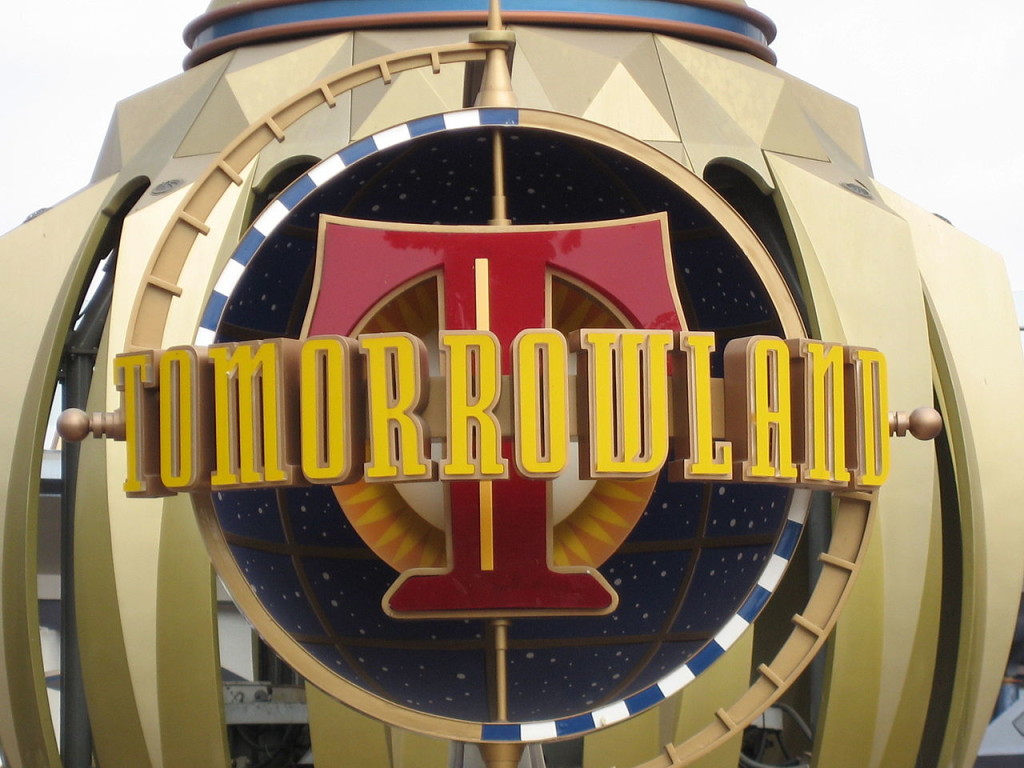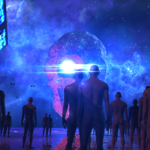 I have to say that I wasn’t expecting too much going into Tomorrowland: A World Beyond. From the trailers it looked like it would be a cheesy romp treading the thin line between self-aware references and blatant advertisement. Were it not a distinctly futurist film, I wouldn’t have bothered going to see it and would have presumed it was strictly for the family-outing market.
I have to say that I wasn’t expecting too much going into Tomorrowland: A World Beyond. From the trailers it looked like it would be a cheesy romp treading the thin line between self-aware references and blatant advertisement. Were it not a distinctly futurist film, I wouldn’t have bothered going to see it and would have presumed it was strictly for the family-outing market.
Expectations were meant to be broken, though, and so it was that I came away pleasantly surprised by how enjoyable the film was. Beyond being a well paced adventure movie, the futurist design elements were a mix of retro and unique and the central message succeeds at being the burst of fresh air it was intending to be.
In an era where we seem to be hurtling towards our own self-manufactured demise, this is a film that asks us all: so how do we fix it?
But this isn’t a review about performances or how enjoyable the action scenes were. The strong female leads continue a positive trend, albeit under paternal tutelage, and the action is exciting whilst avoiding any real sense of threat – it’s a movie for kids, after-all. If I was taking the film at face value, this would basically be the sum total of my thoughts. As this is a Future Conscience review, though, I wanted to dig down a bit more into the moral themes expressed throughout the movie so that we might consider further the hopeful utopia presented to us.
From the outset, the futurist vision is one that rests squarely in a science-led corporate cityscape. Invention and innovation, exploration and creative expression are the foundations that the shining, curving skyscrapers serviced by flying everythings are built upon. A meritocratic utopia where the greatest minds, gifted musicians and expressive artists are given reign protected from the savagery of the rest of the world. There’s an undercurrent of elitism here that should be noted – utopia is for the chosen special few – but this imbalance is consciously mitigated somewhat by the broadly depicted selection criteria. Utopia is for the dreamers, for the hopeful who live life with optimism and excitement; who look to the future and ask just how great could we become. It’s hard to complain about such an optimistic message, particularly one aimed at young women historically shutout of innovative sectors, but let’s park a reminder of the elitist subtext for a moment and see where else the film leads us.
Interestingly, there’s a strong theme of subversion as a positive attribute – indeed one of the characters actually states that part of the selection criteria is disobedience towards the government – which is an intriguing message when we start considering its context. It’s great to see such a big film giving children a license to be disobedient in the name of discovery, that tells them that sometimes it’s worth breaking the rules. This does, at times, border on the precocious, but it’s ultimately an uplifting message aimed at giving younger viewers a sense of possibility and autonomy. However, when such an anti-authoritarian message is presented by a multinational conglomerate the size of Disney, it’s a bit jolting for those watching with a wider view on the media-driven and profit-focused reality that the film exists within. Disney is trying to place itself as custodians of the spark within us, as guardians of imagination that hold the world to better standards than those other nasty corporate worldviews. This mega-powerful, all-encompassing corporation is broadcasting the right message (supposedly) – and that’s all that matters.
Except when you stop to consider that they have been plagued by allegations of employee mistreatment, factory worker exploitation and a host of generally unpleasant – yet surprisingly common – corporate practices. Added to this, I wonder how Disney will react to dreamers of all ages using footage or assets from this film (or from their massive back catalogue) to express themselves and create? To be fair, they seem to be changing their tune when it comes to ruthless copyright protection – but you can see why the rebellious message of the film quickly smashes into the monolithic wall of Disney Inc. (DIS $110.30 -0.87)
Leaving behind the interesting juxtaposition between the message of the film and the reality of its creators, this movie stands out mostly because of its optimistic message. Indeed, that is the core driving force of the whole plot. It’s here that I begin to have a lot of time for the film, and don’t feel the need to pan it as wholeheartedly as many other reviewers and critics have. Yes, it revels in cliches and shallow postcard philosophy – but it’s a kids movie, from Disney. I’m not sure that it is fair to expect it to be too deeply intellectual. Besides, there are enough pointed moments in there – such as a passing reference to the feud between Tesla and Edison – that show that the writers were aware of the surface-level approach taken. Starting from the basis of what you are going to do about a problem, rather than how you are going to complain about it, is an important framework to be giving the next generation.
This unreserved optimism and central vision of hope, whilst a welcome and uplifting change of pace from the usual dystopian landscapes, highlighted for me a curious decision running throughout the film. There is no depiction of religion. I might have missed a passing spoken reference, but the absence of religion in any form is a glaring hole in its utopian view – or maybe it is an intentional shift towards a scientific rationalist worldview. We get fleeting glimpses of Hindus and Sikhs, but these were clearly done in the name of ethnic diversity. There are plenty of references to emotions such as love and joy, but they are wrapped up in direct interpersonal relationships rather than depicted as something more perennial. There are plenty of inventors and artists, engineers and musicians, but is there a role for the priest or the shaman, the monk or the mystic? They have been banished from view, perhaps as a result of the kid-friendly focus (not to mention the rather heated role religion plays in modern American politics), but to remove all references entirely is to overlook a vital component of what would holistically enable us to manifest such an optimistic utopia.
Overall, this is an enjoyable movie for any futurist but it does require you to leave your more critical side at the door and be swept up in its saccharine-sweet and science-focused idealism. The paradoxical message of creative anarchy coming from one of the world’s largest corporate juggernauts cuts through the veneer at times, but it can be overlooked whilst viewing because of the vibrant aesthetic design and world-building.
There’s a lot for futurists to love, particularly if you want to introduce your kids to viewing the world through a lens of responsibility beyond just our own point in time. It’s a positive step, filled with enough subversive messaging as to offer resistance to some of its misguided framing. However, the undercurrent of elitism and evasion of the spiritual component of humanity means that this is a utopia that rings just a little bit hollow.




